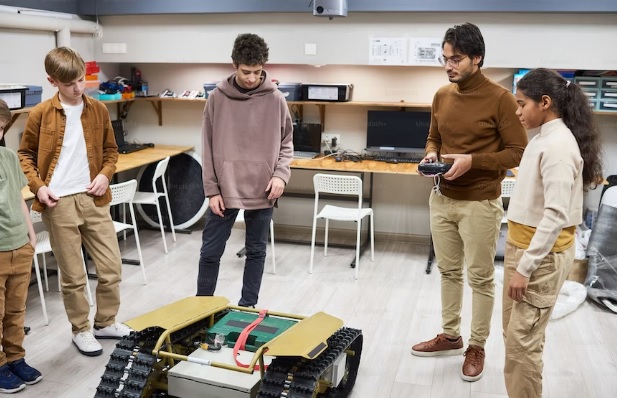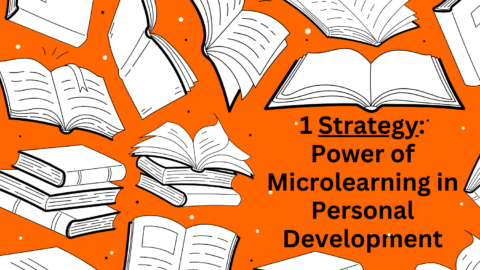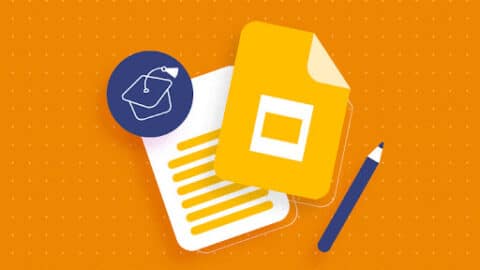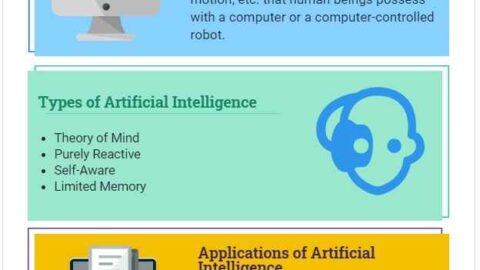AI and Education: Shaping the Future of Learning
Artificial Intelligence has the potential to revolutionize the education field. It involves developing computer systems that execute functions that aid human cognitive faculties. These include logical thinking, acquiring knowledge, and addressing complex issues. AI has also gained significant traction in the field of education. Its applications range from intelligent tutoring systems to personalized learning platforms. Thus, the potential impact of this technology on coaching is significant. It provides opportunities for tailored learning experiences. Besides, it promotes enhanced academic accessibility and improved academic achievements among students.
Table of Contents
AI and Education: Do You Still Need to Tip Someone to Write Papers For You?
The incorporation of robotics in training has established a novel paradigm of learning. This new paradigm is characterized by enhanced efficiency and personalization. But, do I still need to compensate someone to write my paper, or must I hire someone to write my research paper? Yes! It’s worth it to pay for a well-researched paper if you prefer to work with human writers. You get dependable and proficient writing help whenever you pay someone to write an essay. Note that one may pay people to write papers like research papers, essays, and additional assignments. Hence, whether opting for an NLP tool or a human writer, considering writing help services is vital. It serves to mitigate a portion of the stress associated with writing. This measure will additionally guarantee that the output produced is of superior quality.

How AI Technology is Revolutionizing Learning
ML is transforming studies in many ways and is set to revolutionize the way students learn. Personalized classwork experiences and efficient grading and assessment are some of these cases. Others include foreign language teaching, smart study tools, and adaptive curricula. With AI technology in education, such as AI tools for research, students learn at their own pace. As a result, this allows them to focus on crucial areas as they bypass the material they already know. AI-powered grading and assessment reduce teacher workload. Thus they give them more time to focus on instruction. Innovative study tools also provide learners with personalized feedback. They give recommendations to improve their classwork outcomes. Finally, adaptive curricula adjust the pace to suit each learning style. The impact of NLP programs on online teaching is expected to continue growing. Thus, educators must keep up with these technological advancements. This step is vital to allow them to provide the best possible tutoring experiences.
Benefits of AI Technology in Teaching
The integration of robotics has yielded considerable advantages within the realm of training. These benefits include the following:
- Personalization of teaching via AI and education
The customization of tutoring experiences through AI-based systems comes with several benefits. It caters to the unique needs and abilities of individual students. Through the analysis of student data, ML identifies the areas a student requires help. Thus, they provide tailored instruction to address those gaps.
- Increased efficiency
The implementation of ML leads to enhanced efficiency within online tutoring. This case is due to the automation of administrative tasks, like grading assignments. As a result, this allows educators to allocate their time toward teaching.
- Enhanced accessibility
AI-based tools, such as text-to-speech and speech-to-text software, are vital. They improve accessibility for students with disabilities in accessing online teaching materials.
- Enhanced student involvement
Artificial Intelligence offers interactive and captivating academic opportunities. It does this by utilizing simulations, virtual reality, and gamification.
- Enhanced decision-making
Artificial Intelligence improves decision-making in schooling by offering valuable insights and recommendations. For instance, NLP aids educators in identifying students who are at risk of falling behind. So, it becomes easy to suggest personalized tutoring paths for each student.
Challenges and Concerns with AI and Education in Schooling

The incorporation of ML in schooling augments the educational experience of pupils. But besides the benefits, there exist challenges that come with this tech. One case is the need for a comprehensive public policy involving all relevant aspects. This policy promotes complete integration. It also offers massive help in implementing ANNs in the coaching industry.
Furthermore, there are challenges in resolving connectivity, communication issues, and domain expertise. Fixing this will allow the general populace to embrace artificial intelligence via AI and education. Extra obstacles involve the ethical implications associated with the use of artificial intelligence. Others include the possibility of algorithmic bias and the need for teacher preparation. Lack of proficient data administration is another case. The successful integration of ML in any university will need to address these challenges.
The Future of Education with AI
The potential of Artificial Intelligence in education in shaping the future of training is optimistic. ML systems are poised to assist educational institutions in a multitude of functions. These include but are not limited to facial recognition and natural language processing. The identification of patterns within extensive datasets is another area. Projections show that the NLP tutoring market value will experience massive growth. They say it’ll reach $20 billion by the year 2027. The potential outcome of this development is a decrease in educational expenses. It’ll result in an expedited acquisition of soft skills. This will include fundamental skills such as literacy. Thus, it is evident that ANNs will have a massive impact on the future of schooling.
Conclusion on AI and Education
Artificial Intelligence is revolutionizing the field of higher education drastically. It promotes personalized teaching experiences, enhanced efficiency, and improved student academic achievements. But, challenges and concerns exist. These include the need for a comprehensive public policy and addressing communication issues. Others are the ethical implications associated with the use of ANNs.
Nevertheless, AI’s potential to shape education’s future is optimistic. Projections show significant market growth in the coming years. Thus, educators must keep up with these technological advancements. They must address the related challenges to provide the best possible tutoring experiences.

Adhar Dhaval is experienced portfolio, program and project leader with demonstrated leadership in all phases of sales and service delivery of diverse technology solutions. He is a speaker sharing advice and industry perspective on emerging best practices in project leadership, program management, leadership and strategy. He is working for the Chair Leadership Co.










